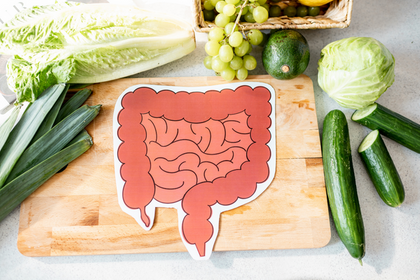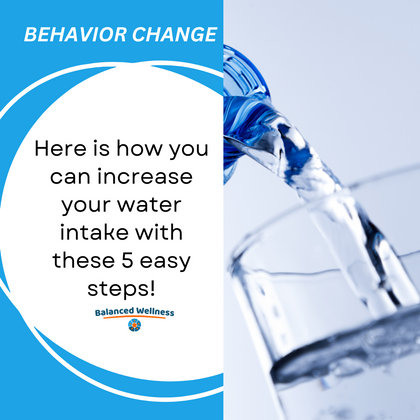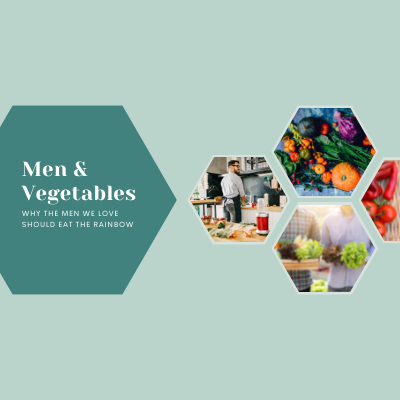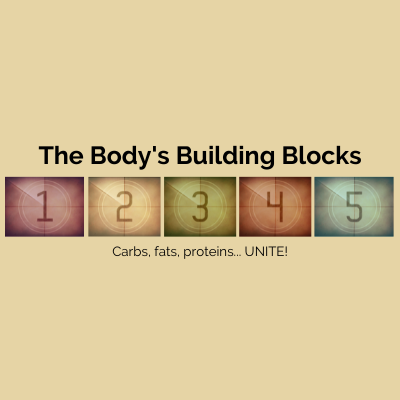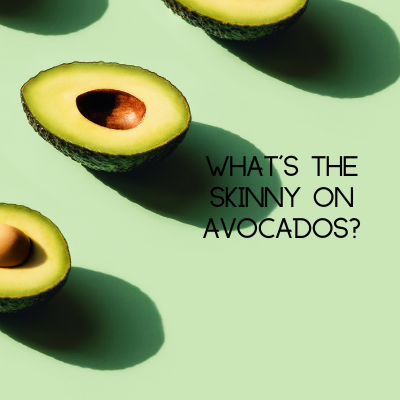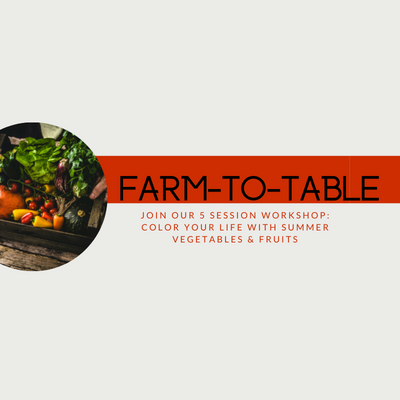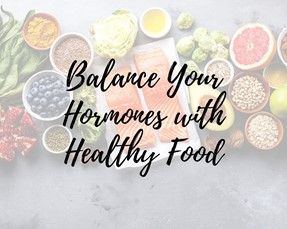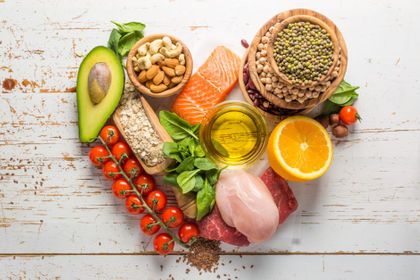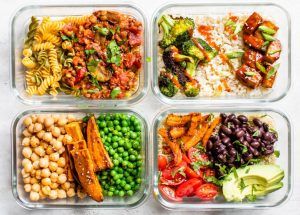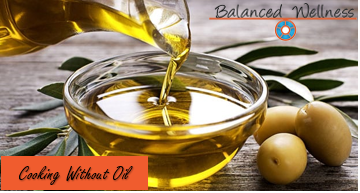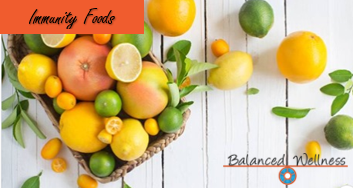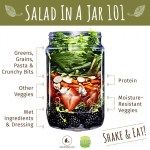Nutrition
Our Blog Categories
Healthy Food - Healthy People - Healthy Planet
As we approach March, National Nutrition Month, our focus will be on how to shift your mindset and lifestyle to encompass food choices that are good for you, others, and the planet. The Academy of Nutrition and Dietetics 2023 campaign theme is “Fuel for the Future,” designed to ultimately guide you to make food choices with sustainability in mind, as well as helping you understand why this is important for you and for our world.
moreTake 5! Basics
Our heads spin simply thinking about all the information we are presented every day about “how to live a healthy lifestyle.” Eat this, not that; restrictions, measurements… it is just too much. And more often than not, it’s just not healthy, nor is it sustainable.
moreNurture a Healthy Gut
Over the last ten years, research on various illnesses, conditions, and health challenges have determined your gut microbiome plays a central role in the prevention, development, and management in many cases.
moreAt-Home Nutrition Strategies
Did you know companies pay for “real estate” on store shelves? It’s called a “slotting fee.” And while it primarily refers to simply getting their products on the shelf, the fee often includes an option to claim “prime” real estate, meaning those shelves that are right at eye level. Why? We are predictable creatures and will usually choose those items right in front of us or those easiest to see and grab. If this strategy works when our own money is involved and when we have hundreds, if not thousands more options from which to choose, what’s to say it doesn’t work in our own homes, too?!
Research proves it does work, which is why we highly encourage you to consider what you put at eye level and/or make easily accessible in your home. This is a fantastic lifestyle change and an integral part of molding our Take 5 principles to your journey. Let us guide you through some general goals, strategies, and actions to help implement long-term change in your home:
Goal 1 – Clear Your Home of Less-Healthy Food
Rather than keeping the special occasion treats easily accessible, choose to only enjoy them outside the home, or specifically buy them for events and parties (then dispose of them).
moreSweet, sweet water!
Updated December 19, 2025.
Portion Control for Weight Management
Contrary to what you may think, the “serving sizes” you see on nutrition labels don’t always reflect how much you should be eating.
moreHealthy Holiday Eating Tips
- The holidays provide an extra opportunity to simply be more mindful, create more intention, and learn from our past experiences. The challenge is to enjoy yourself in the moment BUT also generate circumstances that are full of energy, excitement, and the making of new memories, rather than lethargy, regret, and a nap! Take a look at the categories below to choose a few tips to help you be intentional but to also enjoy every moment this holiday season.
Restrict Less!
November is here and it is not uncommon to hyper focus on “healthy eating” and the restriction mindset as the holidays approach. However, that’s not what true healthy eating is about. How we navigate our own relationship with nutrition affects not only our physical well-being, but also every other dimension of our total wellness wheel.
moreA Safe Summer with Food
The Center for Disease Control (CDC) estimates that 1 in 6 Americans get sick, 128,000 are hospitalized, and 3,000 die annually from foodborne illnesses. While some of these instances cannot be avoided, a large number of them are preventable. And summer is the perfect time to create awareness, as it is known as the “season of food poisoning.” The rising temperatures in the American summer create certain food safety risks – bacteria multiply faster in warmer temperatures and preparing food outdoors (or going back and forth between the indoors and out) makes safe food handling more difficult. The CDC has four basic tips for safely preparing, serving, and storing foods:
Clean
Wash your hands and work surfaces before, during, and after preparing food. Germs can survive in many places around your kitchen, including your hands, utensils, cutting boards, and countertops.
Separate
Separate raw meat, poultry, seafood, and eggs from ready-to-eat foods. Use separate cutting boards and keep raw meat away from other foods in your shopping cart and refrigerator.
moreLet’s Talk Men & Vegetables!
The health needs and challenges for women and men are quite similar, yet differences show up as we age! Many of the chronic diseases we develop over time are predominantly lifestyle induced. And while food availability (or lack thereof) plays a role in the consumption of healthy food options, awareness, education, and creativity are helpful when working to incorporate more healthy choices into our daily diet. Various studies report that only 9% of adults consume a sufficient number of servings of vegetables (based on their age, weight, and health goals), with intake rates reported lower in men, specifically, than the general population. The standard American diet, which is made up of mostly protein and starchy/sweet carbohydrates, coming from fast food and/or processed sources has become the norm – as have the growing numbers of chronic diseases (heart disease, cancer, and diabetes) and premature deaths attributed to them. We can all benefit from enjoying more vegetables (learn how and why to color your summer with veggies here), but as a start to Men’s Health Month in June, let’s look at the specific benefits for men to eat more of the rainbow, as well as more relevant strategies to make it happen!
moreThe Body’s Building Blocks
Three macronutrients – three very different sets of roles – three irreplaceable and equally vital pieces to a balanced diet. Carbohydrates, fats, and proteins are the primary building blocks of nutrition and encompass the key food groups that supply our bodies with the energy they need, enabling us to function at an optimal level. The main point here is that they work together – all three of them – to build, support, and fuel our bodies! Here’s a recap of just some of their individual importance before we dive into how they work in tandem for our every day lives:
Carbohydrates:
- Provide the body with rapidly-utilized energy
- Needed for proper function of the central nervous sytem, kidneys, brain, muscles, and heart
- Readily stored in muscles and liver as glycogen for future use
- Promote gut health and better digestion because they contain fiber
- Improve mood and reduce stress by helping balance hormones
A key point: Whole food versions contain vitamins, minerals, fiber, and phytonutrients you can’t get anywhere else.
Fats:
- Provides long-lasting energy
- Supports the cell membrane, nerve function, and hormone production
- Needed for absorption and transport of certain vitamins in the body
- Insulates the body and keeps our skin healthy
Cultivate Your Balance
It can be a challenge to find a healthy balance that supports your goals without leaving you feeling deprived or restricted. This refers to food habits, exercise, relationships, and pretty much every other aspect of life. Even by reading this far, you have probably considered at least one category, if not more, in which you criticize yourself, have an all-or-nothing mentality, or simply feel inadequate. Before we continue, let us start by saying that this article is not designed to bring attention to all of that. This article, instead, is designed to let you know YOU ARE NOT ALONE in these challenges. Our past and present experiences can sometimes cultivate an unhealthy approach while we’re growing into our goals. Over the next few minutes, let’s look into how you can cultivate a healthy balance based on who you are, where you are in life, your goals, an evaluation of your past experiences, and support partnerships available to you.
This last week of February we want to discuss a healthy relationship with food. Below you will find several strategies that implement our topic from last week – thoughts, beliefs, and actions! All of us eat for different reasons at different times. It may include emotional eating, or eating purely for taste, or celebrating with food. While food fuels our bodies, the experience of eating often reflects other dimensions of well-being. More on that next month. Here are some strategies borrowed from Dr. Sondra Kronberg, who wrote them for the National Eating Disorders Association:
moreGet Ahead of the Game
It’s week two; January isn’t going anywhere… and hopefully your goals aren’t either. This is such a fun time of year to pursue a variety of health goals, from nutrition and fitness to mental and relational health, too. As we proceed, we must be honest with ourselves about what to expect – not only about what goals are realistic and achievable BUT also about the roadblocks that can and more than likely will cross our paths. This honesty is important for two reasons: 1) having the realization that the journey will not be perfect allows you to mentally prepare for those inevitable imperfect moments, and 2) knowing this allows you to also PHYSICALLY prepare for these moments! There is a quote that always seems to make its way around this time of year, and for good reason, so let’s dissect it a bit.
“He who fails to plan is planning to fail.”
While Winston Churchill imparted a lot of wisdom we can use throughout the ages, this one can help us but also hurt us if we don’t use it correctly. What can we take from this as we move forward?
Planning is essential. The reasoning is different for everyone, but planning is essential. You may need to plan because your schedule is so busy, planning is simply what you do to stay on track with everything. Or, planning may help you from making “autopilot” choices (i.e. going straight to the couch after work versus the gym, eating spoonfuls of peanut butter while you wait for dinner to be ready, etc). Working towards a goal that is different from your 2021 life may seem overwhelming, and a plan may help the baby steps appear more achievable, creating greater confidence and more action! There are many reasons why planning is essential. Have you thought about how you can benefit from a plan?
moreWhat’s the Skinny on Avocados?
Avocados are berries. Did that just blow your mind? It’s true… While avocados are known as “alligator pears” due to their shape and outer texture, they are considered berries. And just like the other berries we know, avocados are also packed full of nutrition and health benefits. One half of a medium avocado has over 6 grams of fiber and 2 grams of protein, making it a filling food! And while the fat count is high, avocados have “healthy fats.” Their monounsaturated fat has been shown to help reduce bad cholesterol when eaten in moderation. There are also over 20 vitamins and minerals present in an avocado, thus creating its “superfood” status. Here are a couple of extra fun facts about avocados:
- Avocados contain more potassium than bananas! High-potassium foods are essential to any balanced diet and can contribute to reduced blood pressure in those with hypertension, may lower the risk for stroke, helps regulate the body’s fluid levels, aids in muscular function and waste removal, and so much more!
- Avocados are loaded with powerful antioxidants that can protect your eyes! AND they can help you absorb antioxidants from other foods, too. Those who consume avocados regularly have a decreased risk of cataracts and macular degeneration.
The Farm-to-Table Experience
You’re driving down the street and notice the tents, people milling about, and maybe even some music playing. You slow down, take a closer look, and realize…it’s Farmers Market season! While some farmers markets are open year-round, summer is the perfect time of year to visit, shop, and get to know your local farmers! It is also the perfect time to create your own “farm-to-table” experience! You may find produce you’ve never seen or even heard of before. The farmers may offer a tip that makes preparing/cooking easier and more delicious! And you may discover a greater love for fruits and vegetables!
The farm-to-table experience can be a simple one – and obviously quite rewarding. Not only are the foods from a farmers market more likely to taste and literally BE fresh, the produce is usually picked closer to peak ripeness rather than too early (which is usually the case when foods must travel to grocery stores). This means greater nutrient density for YOU! More sunshine, water, and soil mean more of the vitamins, minerals, and phytonutrients we discussed last week!
Let’s look at some basic tips from the farmers market shopper AND the farmers market vendors, so you “know before you go!” You can also check websites or any social media pages for specific markets’ rules and tips. The “Farmers Markets” page on Local Harvest is a great place to start!
moreColor your Life with Summer Vegetables
Blue – Green – White – Orange/Yellow – Red
Now is the time to think color! Color brings FUN to life, it invigorates and relaxes at the same time. Adult coloring has so many benefits including reduced anxiety and stress, improved focus and sleep…and most people color in color, not black and white – it is FUN! Pick up some pencils or crayons and give it a try on the attached sheet!
Summer is a time for fun, AND we believe well-being includes having fun throughout the year! But summer typically provides many more opportunities. The weather is inviting, it is a time for vacations, and local produce is readily available! The colors in our foods also offer different phytochemicals, antioxidants and nutrients, each with benefits to keep us healthy. Did you know that ‘Great Greens’ help our vision, bones, and teeth? We have attached the Kentucky Proud Produce Availability to get you started. We are also offering a Webinar and 5-session workshop, Color your Life with Summer Vegetables. The Webinar will focus on container gardening, a healthy food demonstration with nutrition tips, and a presentation from Glean Kentucky (currently serving Central and South Kentucky). The following 5 sessions will focus on the benefits of different color fruits and vegetables, recipes and preparation tips, and when and where to purchase or grow them! ALL sessions will be recorded and available to view – just 20 minute sessions!
moreBreak the Perpetual Cycle with Healthy Meal Planning!
To make healthier food choices:
We know to “eat more fruits and vegetables.”
We know nutrient dense foods will give us more energy and support greater health.
We know willpower doesn’t always work, that we need to make other changes to help us reach our goals.
And yet! It is still all too easy to fall back into a perpetual cycle. Yes, they’re also called habits, which is why so many programs and books and educators talk about how long it takes to “break a habit.” But, while the tips associated with habits are backed by a lot of research and they can be super helpful, the physiological response to our habits is not always addressed. We actually classify some of these habits as addictions and there are a variety of them we see or indulge in every day!
moreBalance Your Hormones with Healthy Foods
Hormones, we hear the term frequently, but what are they and what do they do? Well, here is a simplified explanation – hormones are chemical substances that act like messenger molecules, they are made in one part of the body, and travel to other parts where they give messages and help control how cells and organs do their work. While there are many hormones involved, we will discuss 3 in this blog. Leptin, Ghrelin, and Insulin. Read more from Healthline HERE.
Leptin is your helper, and signals “satiety”. Leptin is produced in your fat cells, and tells the brain you have enough fat stored in case you need it stranded without food! Obese individuals may have as much as 4 times higher level of leptin, but it is not working as it should, the message is not getting to the brain. This is referred to as leptin resistance. Elevated insulin levels and inflammation in the hypothalamus may cause leptin resistance.
Ghrelin increases your appetite. Ghrelin is produced in the gut. Essentially, it is secreted when your stomach is empty and heads to the hypothalamus through the bloodstream. Quickly after beginning a diet, your ghrelin levels go up and this continues as you continue to diet, possibly as much as 25-50% in a 3-6-month timeframe. (Rudy Mawer, 2016) This may explain why it is hard to maintain a quick weight loss. Increasing your muscle mass is important to counter an increase in Ghrelin.
moreIt’s National Nutrition Month: Let’s eat for health and life!
As we transition to March, National Nutrition Month, I want to look back a bit before we look forward! We ended our month with gratitude. I ask…
- Are you grateful for your health? Your ability to do the things you enjoy?
- Do you have a health or diet mindset?
- A growth and design mindset?
- And above all…a strong why for health.
You see, a healthy weight is important, but health is about so much more. Reducing your weight by just 5-10% appears to improve glycemic control, reduce blood pressure, and reduce cholesterol levels AND increase longevity. While the studies cited usually identify the benefits for obese individuals, many people that are overweight experience the same benefits – and quickly. There are many benefits to weight loss. But essentially, weight really is just a symptom of the need to change underlying behaviors. Our focus really should be on the behaviors since that is all we can change – and the scale will typically follow. Now, we recognize that there are underlying health conditions that keep the scale from moving, but, changing the behaviors consistently in most cases will ‘move the needle’ of the scale. For those that still use ‘needle versus digital readings’! In reality, measuring weight is just one additional indicator of health and if we didn’t weigh a person who is following healthy behaviors, but merely did their blood pressure and blood work, we would probably still see the change. We need to remove the fixation on the scale! Healthy nutrition provides benefits beyond our physical well-being, improving depression and anxiety, and our overall emotional well-being.
moreBenefits of Eating Salads
Benefits of Salads
Salads are a great way to include fresh vegetables as well as other added healthy foods into your diet. There are different types of salads and different ways to make salads so that you can be healthy and change up your diet, so you aren’t bored with eating the same old thing every day!
moreMeal Planning and Batch Cooking
Meal Planning and Batch Cooking
Benefits of meal planning and batch cooking encompass more than just saving you time and money. If done properly, both of these methods can help you control your portions and eat healthier.
moreCooking Without Oil
Cooking Without Oil
Cooking with oil is something that people have done for thousands of years. However, what we have been taught about cooking oils isn’t necessarily healthy. Although some oils are healthier than others, many oils can have negative effects on our heart. Eliminating oil from your diet is a big step towards having a better diet. There are many easy ways to substitute cooking oils with another option or eliminate it all together!
moreHow Healthy Eating Benefits the Immune System
Benefiting the Immune System with Healthy Eating
moreMay is National Physical Activity Month
May: National Physical Activity Month
moreHealthy Lifestyle Nutritional Plan
- NOW is the time to improve your nutrition.
- What can you do to move toward a lifestyle change?
- AND have a dietary lifestyle consisting of proteins, fats, AND carbs?!
Let’s take a moment to look at the most common successful “diets” around the world and some of what they ALL have in common.
6 Things Successful Diets Have in Common
Read our Blog: Replacing the Bad with the Better
moreWeight Management – “Real Life” Healthy Eating
As all good health coaches know, real, sustainable health changes do not come from a weeklong diet or a few trips to the gym. To achieve lasting results, you have to start looking at health and wellness from a complete and total perspective. When you do this, you’ll likely see that there is no quick solution to a healthy life and that your overall health is actually a combination of your diet, exercise, lifestyle, and attitude.
At Balanced Wellness we take pride in providing the type of health and wellness services that make a difference in the lives of our participants. From incentive programs to health workshops and weight loss management, we offer a range of programs that are all aimed at helping individuals achieve their optimal well-being.
Read on to learn about one of our key Weight Management Programs: “Real Life” Healthy Eating.
more


